His analysis was spot-on.
It was 0-0 at half-time, but he knew Chelsea would lose to Crystal Palace at Stamford Bridge.
Before the game, Jose Mourinho had lost only one of his 99 league games at the Bridge. Now, it is two out of 100 and Sunday Aziegbe saw it coming.
Just as the SuperSport analysts were about to give their first-half breakdown of the game, Aziegbe gave his at Papa Goose, a bar off Ago Palace Way in Okota, Lagos.
Advertisement
“Chelsea’s defence is having a torrid time and it is only a matter of time before Bakary Sako scores for the visitors,” he said amid jeers from fans of the Blues who normally outnumber other fans at most viewing centres in Nigeria.
“Ivanovic has dropped form since Chelsea won the title back in May. And what were small cracks in his game at the start of the season have become glaring shortcomings especially in the first half of this match. They will lose this game and the goals will come from the right-flank.”
And as it turned out, the setups for both Palace’s goals went through Ivanovic’s right flank.
Advertisement
The Chelsea number two was caught out by an overlapping Pape Souare who found Yannick Bolasie to centre for Sako’s opener. 1-0 Palace.
For the second goal, which came after Chelsea’s equaliser, Ivanovic was standing aimlessly inside the box while a cross from Sako sailed over to the back post, which was met by Joel Ward. 2-1 Palace.
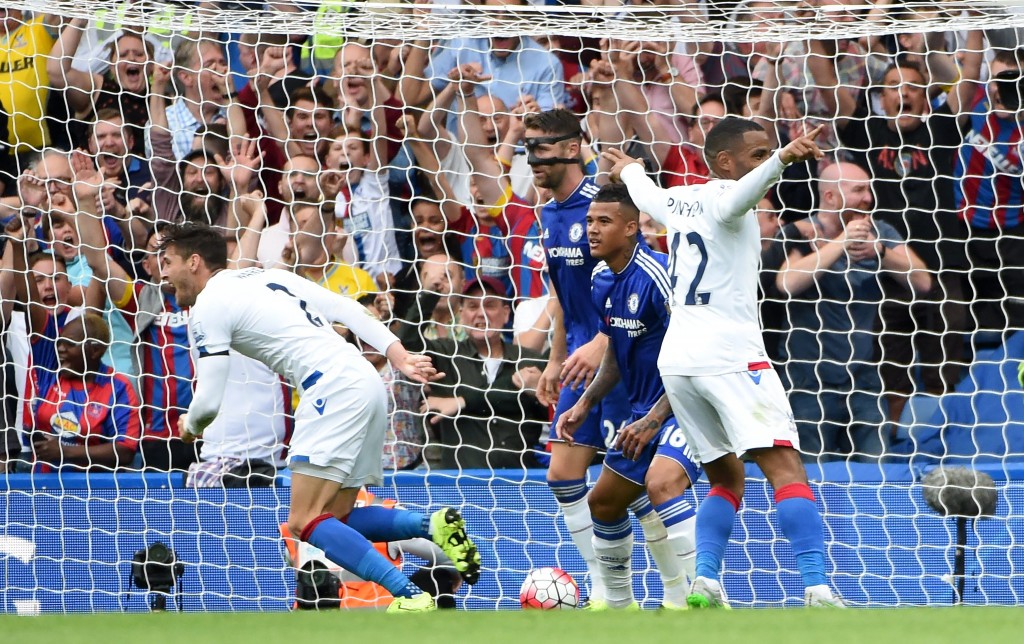
Well, you could call the analysis a fluke because five of the seven goals Chelsea had conceded before that game had been generated through the right flank.
But what then will you say about his call for the substitution of Haruna Lukman barely five minutes into the Super Eagles game against Tanzania in Dar es Salaam a week later?
Advertisement
“Haruna’s lethargy in midfield will make Oliseh lose his first game as Super Eagles coach if he’s not replaced immediately,” Aziegbe said.
Some Chelsea fans who could still recognise his face hissed. One even went as far as to curse him.
“Olori buruku, o ti be re,” he said.
But 5,993.5km away, Sunday Oliseh shut the mouth of his “enemies” by yanking off the Anzhi Makhachkala of Ukraine midfielder after 35 minutes.
Advertisement
Aziegbe didn’t gloat when Sylvester Igboun came in for Haruna. He merely continued watching the game.
After the match, we approached him.
Advertisement
PASSION FOR FOOTBALL AND COACHING
The 38-year-old holds a Bachelor of Science degree in Economics and a Master’s degree in Media and Communication, but he could sacrifice all that for a UEFA grade B licence in coaching.
“I have always had a passion for football,” he told TheCable.
Advertisement
“In my secondary school days, I was like the arbiter in football matters. Any argument on the game was always brought to me and what I say was always the final word.
“I was called NFA then though some people mischievously call it No Future Ambition but it actually stood for Nigeria Football Association, which I was.
Advertisement
“I would have read a course related to my interest in the game but my school’s career and counselling unit was not strong and I had no mentor outside the school so I opted for Economics because of the love I have for my Economics teacher.”
When he was asked why he didn’t explore distance learning or online courses in football management while in the university, he smiled.
“The world was not really a global village in the 90s when I was at Edo State University,” he said.
“It’s an excuse, though, but I felt I could separate my interest in the game from my course in school, which will determine my profession. So, after school and youth service, I got a job in an insurance company and later in a bank.”
But his world came crashing down when the banking tsunami consumed him in January 2010.
“My life stood still,” he said.
“But with a wife and three kids to take care of, I couldn’t afford to remain like that for too long. I did a personal retreat outside Lagos so that my body and soul could catch up. My conclusion after the exercise was to make my hobby and profession one and the same.”
Football?
“You guessed right,” he said.
“So I thought of the fastest way I could get into the game and the options were sports writing and coaching opportunities. With the latter I would need formal training but writing didn’t require all that and I was lucky to get a reporter’s job with a sports newspaper in March 2011.
“While working, I registered for a coaching course with National Institute of Sports but was not taken for the programme. I later came across FCAAN – Football Coaches Association of Africa Nations – on Facebook and registered with them. Sometime in February 2013, they organised a coaching course in Lagos and I successfully obtained the E Diploma Level II in coaching.
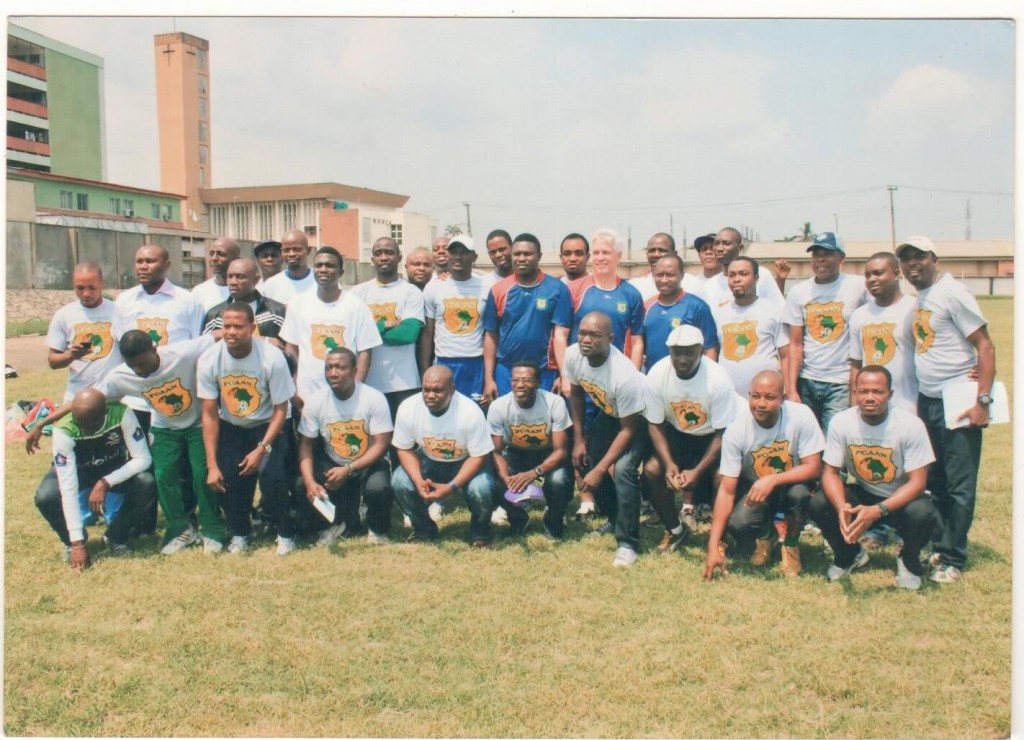
“That’s a foundation course because it is like obtaining a nursery school certificate and you feel contented. I got admitted in a school in England to study football but had to defer the admission because I couldn’t raise the school fees despite writing several letters to virtually all the companies associated with the game, one way or the other, for sponsorship.”
ENTER NATIONAL COACHING TALENT HUNT
The communication material met the AIDA requirement every good advert should have.
It grabbed Attention:
“So you really really want to be the BOSS?”
And elicited Interest:
“Here’s the opportunity of a lifetime, courtesy Birmingham County Football Development Scheme in partnership with Ash Global, MPH Communications and of course fully endorsed by the NFF ( Nigerian Football Federation).
“Young and aspiring coaches will have the opportunity to sharpen their skills at the Birmingham County Football Development Scheme (BFCDS), United Kingdom, for three months if they emerge winners at the National Coaching Talent Hunt.”
It aroused Desire:
“Apart from this, the successful participants also stand a chance of earning the BFCDS coaching certification, N100, 000 monthly allowance during their stay in UK, a ‘chopping’ money spree of N250,000 and have the chance to watch EPL live matches.
“The initiative, which is being put together by Ash Global Resources and MPH Communications, an integrated marketing communication outfit, is endorsed by the Nigeria Football Federation (NFF). On board are former internationals and coaches, Samson Siasia, Augustine Egueavoen and Mutiu Adepoju, as judges for the auditions exercise.”
And stimulated Action:
“Participants are expected to send a short message consisting of their Name, Age and Location to 35811 at cost of N100 to begin the process of registration”. It added that the coaches should be between the ages of 17 and 40 to be eligible.
“Audition event would take place in four centres across the country (Lagos, Benin, Enugu & Abuja) the successful candidates would make the Grand finale in Lagos whereby officials of the BCFDS would be in Lagos for a 5-day clinic. Participants’ evaluation will be based on technical and tactical exercises for 4 days while the last day of the event would be loaded with different captivating programmes.
“All candidates that participated in the clinic will be awarded with BCFDS certificate, while the lucky winners would get the English Football Association level two certification in the UK, which is a perquisite for the UEFA B licence.”
Word of ‘mouth’ from Twitter also helped spread the message.
https://twitter.com/889BrilaFM/status/441190218612604929
#whatshot #video ''The National Coaching Talent Hunt in Nigeria'' http://t.co/mpJv2EPhov http://t.co/f5VtL8REoO #nigeria #abuja
— GO! Nigeria (@GONigeriaNews) November 14, 2013
And like the classic Arabian tales of Aladdin and his genie of the lamp, Aziegbe rubbed the lamp provided by National Coaching Talent Hunt and expected just one wish to be met – enter the world of coaching. The genie’s three wishes could wait.
THE LONG WAIT
According to the timeline released by promoters of the event, registration was scheduled to start January 2014 while the audition was February and March. In April, officials from Birmingham were expected in Lagos for the final process, with winners having the privilege of watching the 2014 World Cup in Brazil and four live Barclays Premier League games in England.
Papa Goose bar was Aziegbe’s Estadio do Maracana, Estadio Minairao, Arena Fonte Nova, and Arena Pantanal during the World Cup. Not that he minded because he saw all that as ‘unsolicited extras’ and still expected the coaching talent hunt to take place after the World Cup.
CALLER TUNES
In Marketing, a robust exchange of views is a euphemism for a shouting match. And that’s what transpired when Aziegbe called one of the lines in the company’s website in January 2015 – exactly one year after subscribing for the programme.
There are three numbers on the site for enquiries. One was constantly busy. One was switched off, but the number owned by a Funsho answered his call.
“I told him I bought a form so as to participate in the talent hunt last January,” Aziegbe said.
“He initially sounded concerned and apologetic, but the word ‘fraud’ made him lose his head somehow.
“’I am not Mr. Ogidan, the brain behind the programme. I’m only a staff, actually was a staff because I have left the company. Don’t ever call this line again.’ And the phone went dead.”
VISIT TO THE ‘LION’S DEN’
We ignored the numbers on www.coachingtalenthunt.com. So, off we went to Block B8, Plot 1, Magodo Brooks, CMD road, Magodo to meet the faces behind the company whose mission statement is “embracing world renowned systems in the production of world-class coaches”.
We initially missed our way because we assumed the address was inside Magodo Brooks estate. After several volunteered directions and misdirections, we found the office blocks away from the two entrances to the estate.
The one-storey building was deserted and for fear of dogs, we tip-toed into the compound. A lady, not looking menacing, came out of the back flat. Her 32 was as white as fluorescent.
We introduced ourselves and asked for the office of Ash Global Resources and National Coaching Talent Hunt. Her look said wrong address and we smiled. It figures, we thought – until she mentioned MPH Communications.
“My boss, Mr. Jide Iyiola is not around. But you can call him and explain your mission to him,” she said.
She led us in and we put a call to her boss, who must have coined: “So you really really want to be the BOSS?”
“You shouldn’t have gone to the office because nobody will attend to you. The place is deserted,” Jide Iyiola said after we introduced ourselves, stating the reason for the visit.
“Only 30 people paid and subscribed for the programme and it was postponed because of security reasons. Moreover, we have started remitting money to anybody who calls us. We ask for evidence of payment and credit their account.
“Some even called that we should still hold on to their money because they believe the coaching talent hunt will still hold.”
But will it, we asked?
“Well, I can’t say for now. But then, MPH Communications is no longer partnering the promoters of the concept. Please, let’s see some other time but you can drop further enquiries with my receptionist.”
We duly obliged.
5 QUESTIONS FOR ASH GLOBAL, MPH AND TALENT HUNT
1) Do you have a business model? If yes, didn’t it look at the possibility of the event being undersubscribed for?
2) How prepared were you for an event of this magnitude? What’s your pedigree in this line of business?
3) The benefits you promised were quite impressive. But did you weigh in the cost? And were you out to mislead the interested public with juicy benefits just to get them hooked?
4) Your website is still making those promises. Is it not high time you shut it down? But before you do that, why not use that medium to reach out to people who made payment and think of how to refund them? Must you wait for people to call before making refunds like you claimed?
5) What lessons have you learnt from this experience? How best will you handle future endeavours?
NFF USE THE ‘F-WORD’
The worst page in the entire dictionary has words like disgraceful, disgusting, dishonest, and disingenuous. These could be words running through your mind about the promoters of this idea who had the vision of “focusing and building a new generation of coaches for the development of Nigerian football”.
But Siji Lagunju, a member of the technical department of Nigeria Football Federation, added Fraud to the picture when he spoke with TheCable.
“The only recognised body saddled with the responsibility of training coaches in Nigeria is the NIS (National Institute for Sports),” he said.
“Nothing anybody does will be recognised by us. We don’t know anything about any national coaching talent hunt.”
When he was reminded that they had the NFF logo (which the public assumes gives authorisation) on their communication materials, he sounded unimpressed.
“Forget it, it’s fraud.”
We threw in the names of Eguavoen, Adepoju, and Siasia to see if he will at least acknowledge the efforts of the promoters of the event. He still dismissed them.
“Those names you mentioned are just learners like me,” he said.
“They are not instructors because we have only three instructors in Nigeria. Baba (Adegboye) Onigbinde, (Shaibu) Amodu, and (Kashimawo) Laloko.
“There’s a wide gap between a coach and an instructor.”
But did NFF actually give their blessing to the event?
“They did,” Jide Iyiola, of Ash Global Resources, said when we eventually caught up with him.
“We paid them millions to get their consent. I have letters from the federation to back up this claim. But, sorry, I won’t show them to you.”
Amaju Pinnick, president of NFF couldn’t be reached for comments as well as Ademola Olajire, the communication director of the federation. But we sent this to their various email addresses:
5 QUESTIONS FOR THE NFF
1) Can anybody train coaches in Nigeria?
2) What does it take to get the federation’s consent to train coaches?
3) NFF seem to ‘endorse’ successful coaching clinics like the one FCAAN organised in 2013 and distance themselves from any heading for the rocks like the moribund National Coaching Talent Hunt. Is it wrong to make this conclusion?
4) Does the federation have a department that monitors events like these?
5) Did the federation actually endorse this coaching talent hunt? And how well do you know the promoters of the concept?
THE THREE MUSKETEERS
No one can blame any subscriber. An opportunity to work with Austin Eguavoen, Samson Siasia, and Mutiu Adepoju – who played a combined games of 152 for the Super Eagles – doesn’t come knocking at all times.
We often hear sports commentators say ‘Austin Jay Jay Okocha was so good that they named him twice’. But we want to tell you that his namesake, Austin Eguavoen, transcends that.
Eguavoen was so good in tackles that someone else once got booked for a foul he committed! He didn’t shirk away from his responsibility this time when we spoke to him.
“Last year, I got a call from the promoters of the talent hunt and I flew down to Lagos for talks,” he said.
“Mutiu and Siasia came, too. We had lunch with them and discussed. I loved the idea. It was a good initiative because we can’t keep on having players without having those that will train them.
“After lunch, they said they will contact us when the auditioning is about to start but since then I have not heard from them.”
Did you call to find out why?
“I don’t have to,” he said.
“This is not the first time I will be doing something involving coaching people. I have done similar things with MTN and Glo in the past. I go there, lecture the kids on coaching. I get paid and I leave.”
He lost his cool when told that the NFF said they were not aware of the programme.
“NFF cannot say they were not aware of the plan to organise the coaching talent hunt. How can they say that?”
“So, why didn’t they react when they saw their logo on the promo? Please, don’t call me into this kind of nonsense next time.”
So, any advice for those who have paid for the event?
“Well, I don’t know,” he said.
“Mine was to come and give lectures and training. I didn’t handle money or registration.”
Adepoju didn’t respond when his phone rang while Siasia’s line was unavailable. But we have this for them:
5 QUESTIONS FOR SIASIA, ADEPOJU AND OTHERS
1) What informs your decision to pitch your tent with a product or service?
2) Do you do a background check on relatively unknown brands before associating with them?
3) Do you study the business model of the brand and the viability of the idea they are pushing before jumping on their offer?
4) Do you consider your reputation before aligning with a brand?
5) Is associating with any and every brand the only viable thing you can leverage your goodwill on?
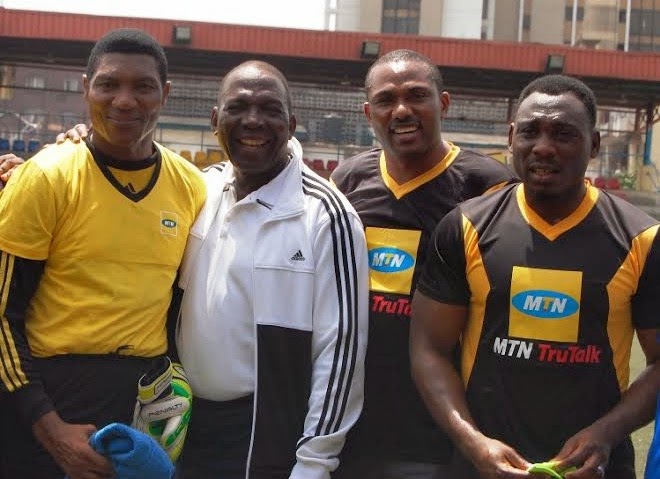
THE BIRMINGHAM CONNECTION
Five Nigerian coaches were promised to be sent to the United Kingdom for the English FA Level II coaching certificate course in 2014 courtesy of the National Coaching Talent Hunt, an initiative of Ash Global Resources and MPH Communications, and the Birmingham County Football Development Scheme.
We are no longer strangers to National Coaching Talent Hunt and Ash Global Resources. But who are BCFDS – Birmingham County Football Development Scheme, for long?
According to their official website, www.birminghamfa.com, the association was “formed back in 1875 following a request from 10 teams wanting to play within a structured environment – these days, the Association now boasts over 4500 Teams, playing in over 50 leagues from the region’s 7 professional clubs to the grassroots entry level of U7 for Mini Soccer. In addition, there are hundreds more playing Futsal or small sided football at dedicated centres”.
It also says that the county boundary is “vast, extending beyond just Birmingham, to encompass the Black Country, Coventry, North and South Warwickshire, Burton, Tamworth plus other parts of Staffordshire and Worcestershire”.
We don’t know if the ‘Black Country’ includes Nigeria, but we can always find out when they reply our five questions mailed to them.
5 QUESTIONS FOR BIRMINGHAM
1) Is there really a business relationship between you and National Coaching Talent Hunt/Ash Global Resources? And how did you get to hear about them?
2) Have you done a similar training for coaches in Nigeria or any part of Africa?
3) You were to come to Lagos, Nigeria, for the final auditions in April 2014. This is September 2015. Have you found out from your Nigerian partners what delayed the process?
4) How well do you know your business partner?
5) What lessons have you learnt from this experience?
THE JOKE ON ZENITH BANK?
“I am looking for a bank which can do two things for me. Give me a loan, and then leave me alone.”
The promoters of this coaching talent hunt would probably have laughed at this joke and tried to replicate it by collecting money from would-be coaches and keep mum afterwards.
The Zenith Bank account name (National Coaching Talent Hunt) and account number (1130049147) was provided for interested members of the public to make a deposit of N3,000 into.
But a senior manager in Zenith Bank, who doesn’t want his name mentioned, is not seeing the funny side of the matter.
“The account has gone dormant,” he said.
“I wouldn’t say it was a fraudulent transaction but what I found out was that the response from people was poor; that’s why the programme couldn’t go on as planned. But my only grouse with the promoters is that they didn’t refund the money they collected since it became obvious the event couldn’t hold.
“I will advise you to write the legal department of the bank as the matter now involves the media. You can also write the chief inspector of Zenith Bank as well.”
So, here are our five questions to Zenith Bank’s company secretary/legal adviser, Michael Osilama Otu, and the chief inspector, Ilegar Sunday Ighiezemhe.
5 QUESTIONS FOR ZENITH BANK
1) How well do you know this customer and his line of business? Was any KYC (Know Your Customer) exercise carried out?
2) What about visitation before the account was opened?
3) When you noticed that the account went dormant, what did you do about it?
4) Can you please instruct National Coaching Talent Hunt to refund money to subscribers, as it is now obvious that the event can no longer hold?
5) The NFF and Zenith Bank recently announced a partnership for youth football development and capacity building programmes for Nigerian football. Don’t you think a thorough investigation of this matter will help this new partnership?
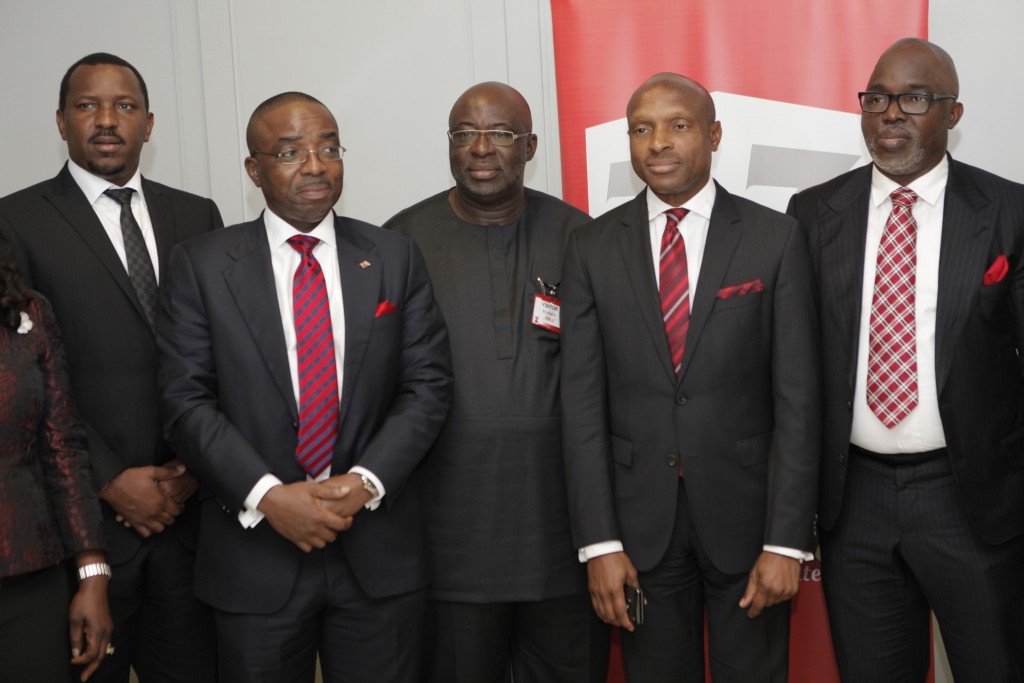
EXPLOITING NIGERIANS’ PASSION FOR FOOTBALL
One of the fundamental human rights, according to the United Nations resolution, is that children and the youth should be given a safe environment for play, recreation and display of talents.
We have had popular youth competitions in the past like the Ajegunle Mock Nations Cup and Orient Grassroots Festival in Lagos, School Road League in Aba, Oba Erediuwa Cup in Benin City, Haven League in Enugu, Sardauna League in Kaduna, Gwarimpa League in Abuja, and Hilltop Youth Championship in Jos.
Players like Samson Siasia, Emmanuel Amuneke, Austin Okocha, Dele Adeleye, Pius Ikedia, Taiye Taiwo, Obafemi Martins, Nnamdi Oduamadi, Ramon Azeez, Emmanuel Emenike, Femi Opabunmi, Brown Ideye, Ahmed Musa, Odion Ighalo, Ogenyi Onazi, Efe Ambrose, Kenneth Omeruo, Joseph Yobo, Isaac Success, Kelechi Iheanacho have been discovered from the grassroots.
But most of these grassroots competitions are fading away. It was perhaps to fill this gap that we saw the proliferation of football academies and talent hunt programmes. However, most of these academies and programmes are without proper organisation. Some even have other motives for being established.
“Companies support sports in order to derive value. Football is big business and millions of people can be employed across the several value chains.”
That’s what Peter Amangbo, the managing director of Zenith Bank, thinks. But sadly, some companies are exploiting Nigerians’ passion for the game while the NFF stand still, with arms akimbo, watching all these happening.
“A twist to this malady was arrived at when some corporate organisations, rather than work with relevant agencies such as the state football associations elected to promote talent hunt programmes,” Frank Edoreh, chairman of the Lagos state chapter of the Sports Writers Association of Nigeria (SWAN), said.
“These programmes came with veiled promises of discovering and nurturing players to service domestic clubs, the national teams and the career interest of these youngsters.”
In 2008, Oceanic Bank announced the launch of Football Challenge with Fash. The show offered prizes of over N15 million in cash, 20 brand-new cars and a Honda CRV Jeep. Six of the cars were set aside for winners of the raffle draws in the six zonal trial centres, while 14 were reserved for the players that would constitute the winning team known as Fash FC.
The first series of the programme, which was hosted by ex-footballer, John Fashanu, ended in acrimony after he was accused of mismanaging N25 million donation from Aliko Dangote. He denied it, though.
“I still can’t understand how Oceanic Bank have been allowed to get away with this highly unethical project,” Dayo Coker, a public affairs analyst, said.
“Are there no watchdog groups in Nigeria? I first took an interest in the programme after watching (Austin) Okocha’s presentation (in the second series) on local television. At the event, I saw two shaggy-haired, unkempt young men take the stage and thank ‘Mummy’ (Cecilia) Ibru (the MD of the bank) for giving them an opportunity to ‘make it in life’. As the diffident young men spoke in halting English, they listed the great prizes they received from the first edition and how their lives had been transformed.
“However, there was no mention of a football contracts or trials with a professional football club. That was when I took an interest in the matter. I did some research and discovered to my surprise that Oceanic Bank and John Fashanu had actually charged these mostly dirt-poor unemployed youths a hefty 3,000 naira to participate in this so-called talent competition. After showing them on television going through some drills, the finalists were rewarded with gift prizes and supposedly given jobs with Oceanic Bank.
“On May 3, 2009, Eric Dufegha, one of the winners of a Kia Car, granted an interview to The Daily Trust’s David Ngobua. According to him, “we were given N1M naira each and jobs in Oceanic bank. So as I am talking to you, I am a staff of Oceanic Bank. We don’t go to work every day but they understand that we are footballers. We are paid our salaries as and when due.
“What kind of management allows a publicly-owned company to employ unqualified people as a means of promoting a dubious football academy? What if all the winners are totally incompetent, uneducated touts? Would Oceanic Bank still make space for them in their banking offices or continue paying them even when they don’t come to work? What has playing football got to do with getting a banking job?
“Such football programmes are not about gift prizes and jobs. They are designed to help talented people become successful. In essence Fashanu and Oceanic Bank initiated a lottery where they raised money from donors, skimmed desperate mostly untalented youths of their cash and still managed to convince gullible Nigerians that they were doing something for the society.
“Oceanic Bank is simply exploiting the fact that many Nigerians are poor and mad about football. That is why the bank had instituted what could be termed a “football beauty pageant” where people buy a “scratch card” in the hope of winning great prizes. How many trialists were produced by the first season of the programme? I remember watching an edition of “Fash FC” where I saw a mediocre 28-year old man as one of the finalists. Is it realistic to expect a football club to consider hiring a 28-year old man who has never played professionally?
“Even if Oceanic Bank argues that it is not running a football academy but simply rewarding talented ball jugglers with prizes, there is an ethical issue with the bank’s decision to collect money from applicants. Imagine what would happen if Barclays or HSBC decided to create a profit-making subsidiary to exploit aspiring British footballers even after collecting loads of money from sponsors. It is not just right, especially for a bank whose chief executive is a member of the United Nation’s Global Compact.”
The winners were awarded prizes in cash, cars and bank jobs but none of the so-called discovered players are anywhere near the horizon of serious football.
But NFF stood still watching without interest.
Not to be left behind in this new “get rich quick scheme” and realising the football federation will acquiesce to their request, telecoms giant Globacom launched Glo Football Academy.
Participants, who applied via SMS, were screened at various locations in West Africa by coaches and ex-footballers and 33 “identified talents” were brought into an academy for five weeks for further coaching.
Out of that number, 16 were selected as winners and awarded cash, cars and an opportunity to attend the Manchester United football schools in the UK for a few weeks.
“While the package looked great, it can also be seen that the real objective was to achieve marketing communication and commercial penetration more than to discover and nurture players. Like the Oceanic talent hunt, the activities of the academy is recorded and produced for a Reality TV Show airing on various national TV networks and, in the final analysis, it did not matter if the participants returned home to other things other than football,” Edoreh said.
Unsurprisingly, MTN came up with the Lagos Street Soccer Project in 2008.
Teams were made to pay N5000 registration fee to participate and thousands of teams sprang up from every nook and crevice of Lagos.
Non-footballers were not left out as there was provision for “corner betting”. Fans were charged on SMS to predict and win on the matches and a lot of them placed bets in support of their street teams.
Like in the other talent hunt programmes, winners of the championship were promised cash prizes ranging from N1m to N5m – for the champions – and all-expense-paid-trip to places like Dubai, South Africa, Ghana, Gambia, for the different classes of winners.
“While the company connected with the bulging youth population in Lagos, it is doubtful if the promise of raising players for Nigerian football was achieved beyond the sweet sensations of the street soccer,” Edoreh said.
“For instance, the players of ABS Street, 2013 winners, the likes of Captain Yusuf Adigun and Uzor Okoro, do not seem to be heading for any career in football. Same is the situation of players of Koilo 2 Street and Captain Niyi Owolabi, winners of the 2014 edition. Curiously, the Street Soccer Show is run under the belt of the Lagos State Sports Ministry with very minimal involvement, if at all, of the Lagos State Football Association. This speaks volumes about the content, direction and total focus of the project.”
In 2014, the Airtel Rising Star expected an entry of about 63,000 young Nigerians through SMS cost at N100. Well, that’s a mere N6.3m and the company apparently provided additional funding to make up for the gap in the subscription.
A senior manager with Airtel, who craved anonymity, smiled when this figure was mentioned to him by TheCable. When he was questioned further, he gave little away.
“I don’t know if any money came in,” he said.
“But then, it’s not a profit-making venture. It’s a CSR to football development in Africa.”
The project will enter its fifth season in 2015.
“While, like the others, the project provides engagement for coaches and retired players, it is to be examined if the approach and funding genuinely addresses the local need of Nigerian youth football development,” Edoreh said.
“While the organisers may point to a number of players in the junior national teams, like Musa Mohammed Shehu, captain of the 2013 Golden Eaglets U-17; Zahradden Bello and Al Hassan Ibrahim Abdullahi of the 2012 U-17; Muri Lawal of Sunshine Stars FC Akure and Josephine Mathias of the Falconets as products of the project, it is a known fact that such players have been tutored and raised by coaches in their local areas and that they only happened to have attended the Airtel programme at some point.
“These organisations were not set up nor equipped to run technical programmes for football development. For the purpose of sincere corporate social responsibility, these brands were expected to sponsor programmes of the National Football Federation and/or state FAs for youth football development, or partner league clubs to establish and fund feeder teams in a well programmed, organised and purposeful football environment.
“Cumulatively, the amounts of funds being expended on the talent hunts by these brands are in hundreds of millions but it is obvious that these funds are not being properly, constructively and genuinely spent for football as much as they are being channelled for publicity and media for marketing communication of the brands.”
IT’S THE ADMINISTRATION, STUPID!
One of the slogans of Bill Clinton during his first presidential campaign in 1992 was: “It’s the economy, stupid!”
It aptly describes who to blame for all these.
“Those guilty should face the disciplinary committee of the NFF which is responsible for sanctioning those who break the rules,” a source in the federation told TheCable.
Surprisingly, some of the rule breakers are in the federation.
“If the NFF can’t fully monitor the activities of these initiatives, they can abdicate the role to the NANF Grassroots Football Project (NGFP), a youth development scheme established by the National Association of Nigerian Footballers (NANF) for the training and education of young footballers,” the same source said.
“The NANF carries out its functions under two schemes – the youth football development centres and the school to football pitch programmes.”
Kayode Tijani, a veteran sports journalist is at a loss to who in the federation monitors these talent hunt programmes.
“Who monitors the activities of Gulder Five-Aside – a street competition for youths between the ages of 16 and 30 in Lagos?” he said.
“What about the Pepsi Beach Soccer which takes football fans to the sands of bar beach in Victoria Island Lagos to have fun and to participate in novelty beach soccer games?
“Coca Cola Talent Hunt is for all grassroots football players across the 36 states of Nigeria. But can the federation beat its chest and say they know all about it?
“Or did I hear you say the Milo Football Clinic?”
The clinic, organised by Nestle Foods for young and intending football players from age 11 to 15 years, is currently anchored by Peter Rufai.
“We need to introduce football to secondary schools; we have boys and girls who can build a career in the sport and become world champions,” the former Super Eagles goalkeeper said.
“There is the need for the government and corporate organisations to support and focus on football at the grass root in order to discover new talents.
“If such talents are groomed and exposed, they would make the nation proud in international events.”
Our investigation revealed a different story.
DREAM DENIED?
“We purposely left out government bureaucracy because that will draw us back. We are private sector-driven; we are transparent and that is why we approached people with credibility like Adepoju, Siasia and Eguavoen. It will also be an opportunity for the coaches to identify with these our heroes, which will drive them to success,” Abiodun Ogidan, the CEO of Ash Global Resources, said in December 2013.
Identifying with such heroes and actualising his coaching ambition drove Sunday Aziegbe into subscribing for the coaching talent hunt.
But his still remains a story of a dream deferred, if not denied.
Every time his hopes were raised, out would come the rug under him: an unsuccessful attempt to get into NIS one year, a UK university admission deferred another and waiting in vain to hear from National Coaching Talent Hunt this time around.
But wait a minute, another registration is on.
This one is presented by Five Sports Limited in partnership with Health Plus, SportsDay, and Nigeria Football Federation. Yes, the same NFF. Here we go again?
Luckily, Sunday Aziegbe is ineligible for this one – it is for footballers and not coaches.
But then, who will be the next Sunday Aziegbe?
1 comments


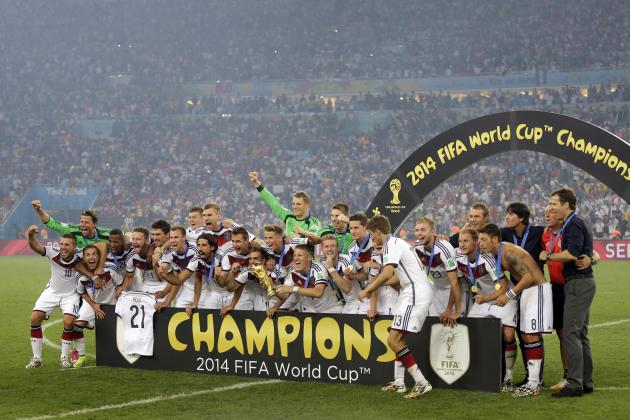
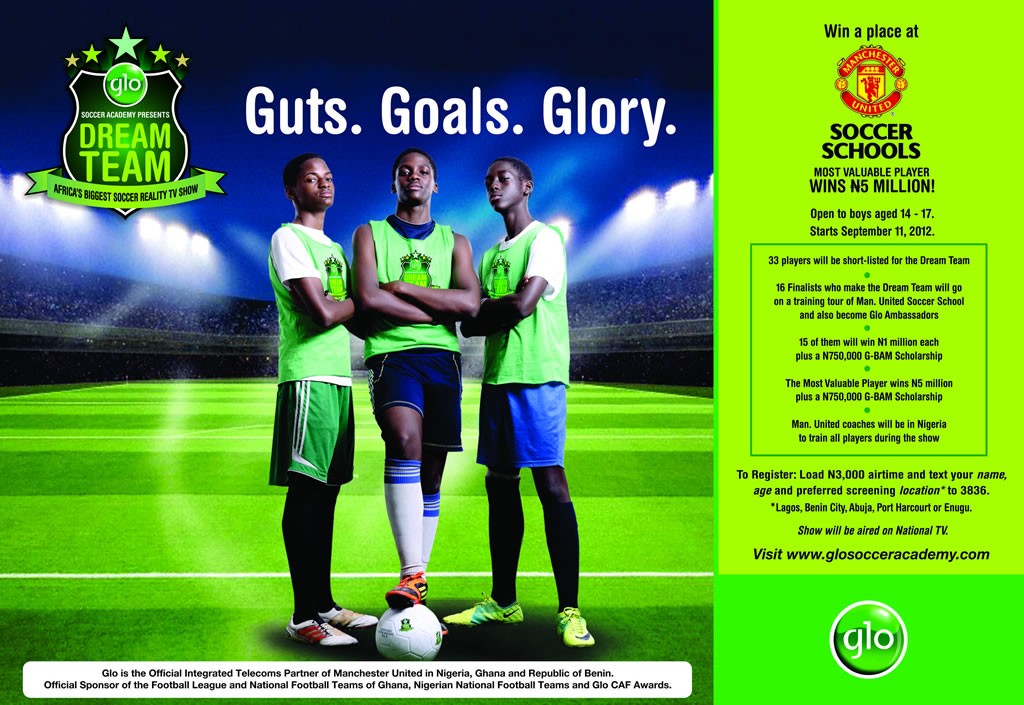
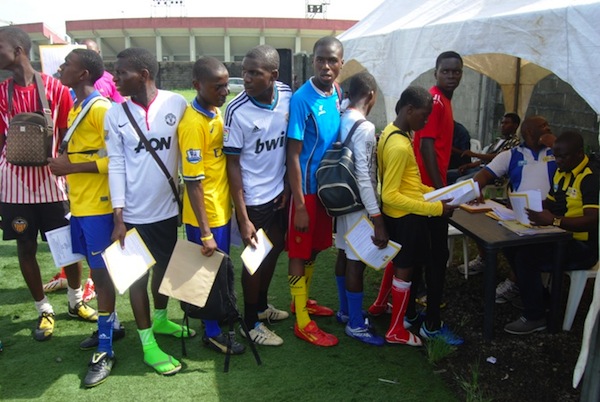
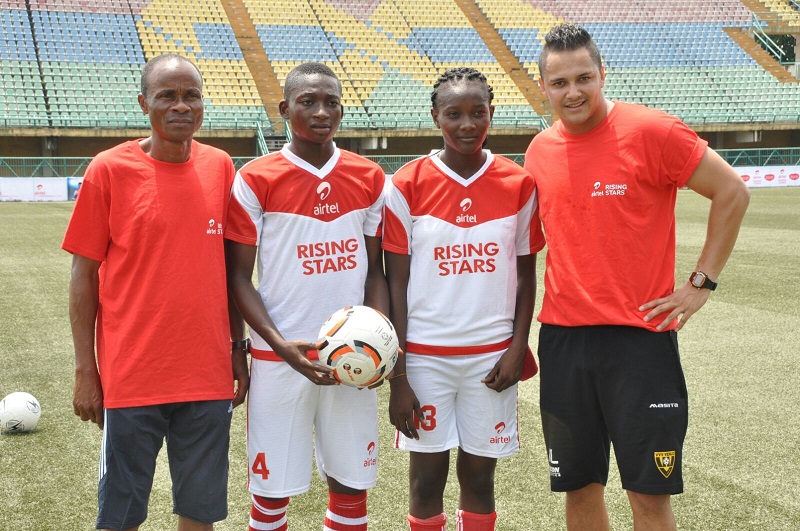
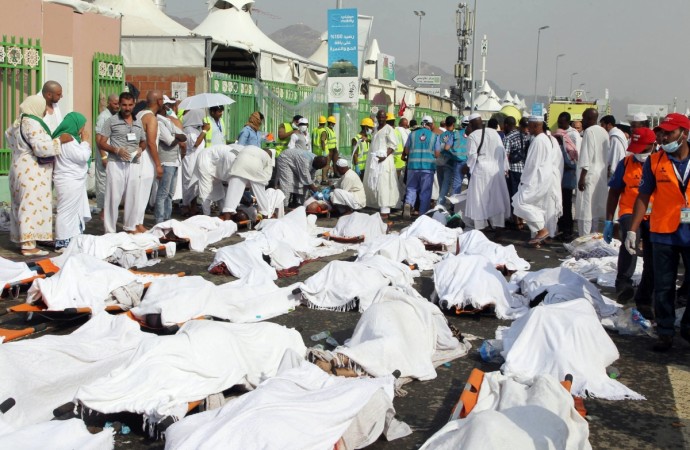
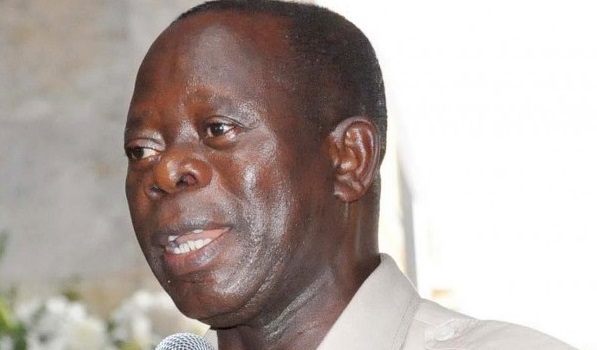




Congratulations to all